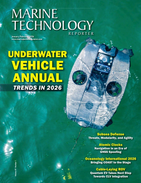PML: How Climate Change Will Alter European Fish Distribution
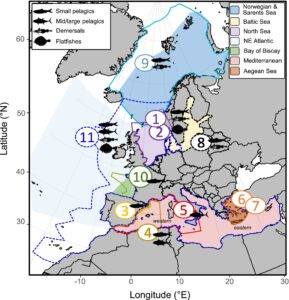
Basins or sub-basins (color-shaded areas) and model domains (contours and numbers). Fish silhouettes correspond to broad fish groups. Map lines delineate study areas and do not necessarily depict accepted national boundaries. Credit: PML
A new study, led by Plymouth Marine Laboratory (PML) in collaboration with marine scientists from across Europe, reveals the extent to which climate change is set to significantly alter the distribution and abundance of commercially important fish species across European seas over the coming decades.
The paper "Multiple Models of European Marine Fish Stocks: Regional Winners and Losers in a Future Climate," published in Global Change Biology, represents the first comprehensive, multi-model assessment of how 18 key fish stocks will respond to warming waters across seven European regional seas from the Mediterranean to the Arctic by 2100.
“Our analysis shows that the overall productivity and biomass of these crucial species are projected to decline within European waters by at least 15% by 2050 under moderate emissions scenarios, and by over 40% by 2100 under high emissions scenarios,” explains lead author PML’s Dr. Sévrine F. Sailley. “However, these changes won’t be uniform—we’re seeing a complex patchwork of ‘winners and losers’ depending on the species and region.”
The international research team employed eleven bio-ecological models to project how fish stocks will respond to changes in sea surface temperature, primary productivity, and other environmental factors under different climate scenarios.
Rather than focusing on total biomass or catch potential, as most previous studies have done, the research examined individual commercially valuable species across relevant spatial scales.
The study found that valuable cold-water species like herring, cod, and haddock are projected to decline in the North Sea by 10-20% under moderate warming scenarios and by 10-80% under high emissions scenarios by 2100.
Meanwhile, some warm-water species in the Mediterranean, such as dolphinfish, may actually benefit from warming waters if properly managed.
One of the study’s most striking findings is how fish distributions will shift as species follow their preferred temperature ranges. In the Northeast Atlantic, most species will migrate northward, with shifts ranging from just a few kilometres for haddock (3-25 km) to over 400 km for herring (230-430 km) by 2100. In the Mediterranean Sea, shifts will occur primarily along an east-west gradient, with changes in centroid location ranging from 2 to 786 km depending on the species.
The economic stakes are particularly high for the European Union, as the world’s largest single market for fish and fish products. The EU aims to effectively manage its fish stocks and sustainably grow its aquaculture sector to promote self-sufficiency in the domestic supply of fish and seafood, but climate change poses both risks and potential opportunities to these goals.
The study underscores that the fishing industry can adapt to these changes, but only with forward-looking management strategies. This includes cross-boundary management between countries for stocks that occur across multiple Exclusive Economic Zones (EEZs).
Traditional fisheries management frameworks based on historical data and static stock boundaries will become increasingly inadequate as species distributions shift. The authors recommend incorporating climate projections into fisheries management planning and argue that robust projections from regional models can provide the best underpinning to planning actions to successfully meet key policy objectives such as the United Nations Sustainable Development Goals (SDGs).
The publication was led by PML, with support from:
- Mediterranean Institute for Advanced Studies (IMEDEA, CSIC-UIB), Esporles, Spain
- Wageningen Marine Research, Wageningen University and Research, IJmuiden, the Netherlands
- Technical University of Denmark, National Institute for Aquatic Resources, Kongens Lyngby, Denmark
- Nippon Foundation Ocean Nexus, School of Resource and Environmental Management (REM), Simon Fraser University (SFU), Burnaby, British Columbia, Canada
- Hellenic Centre for Marine Research (HCMR), Anavyssos, Greece
- Institute of Marine Research (Havforskningsinstituttet) (IMR), Bergen, Norway
- DECOD (Ecosystem Dynamics and Sustainability), IFREMER, INRAE, Institut Agro, Brest, France
- Centre for Environment, Fisheries and Aquaculture Science (Cefas), Lowestoft, UK
- Wageningen Economic Research, Wageningen University and Research, Wageningen, the Netherlands
- Department of Coastal Systems, Royal Netherlands Institute for Sea Research (NIOZ), Den Burg (Texel), the Netherlands

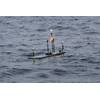
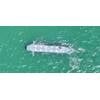
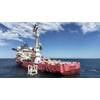

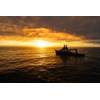
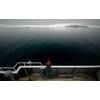






 December 2025
December 2025


